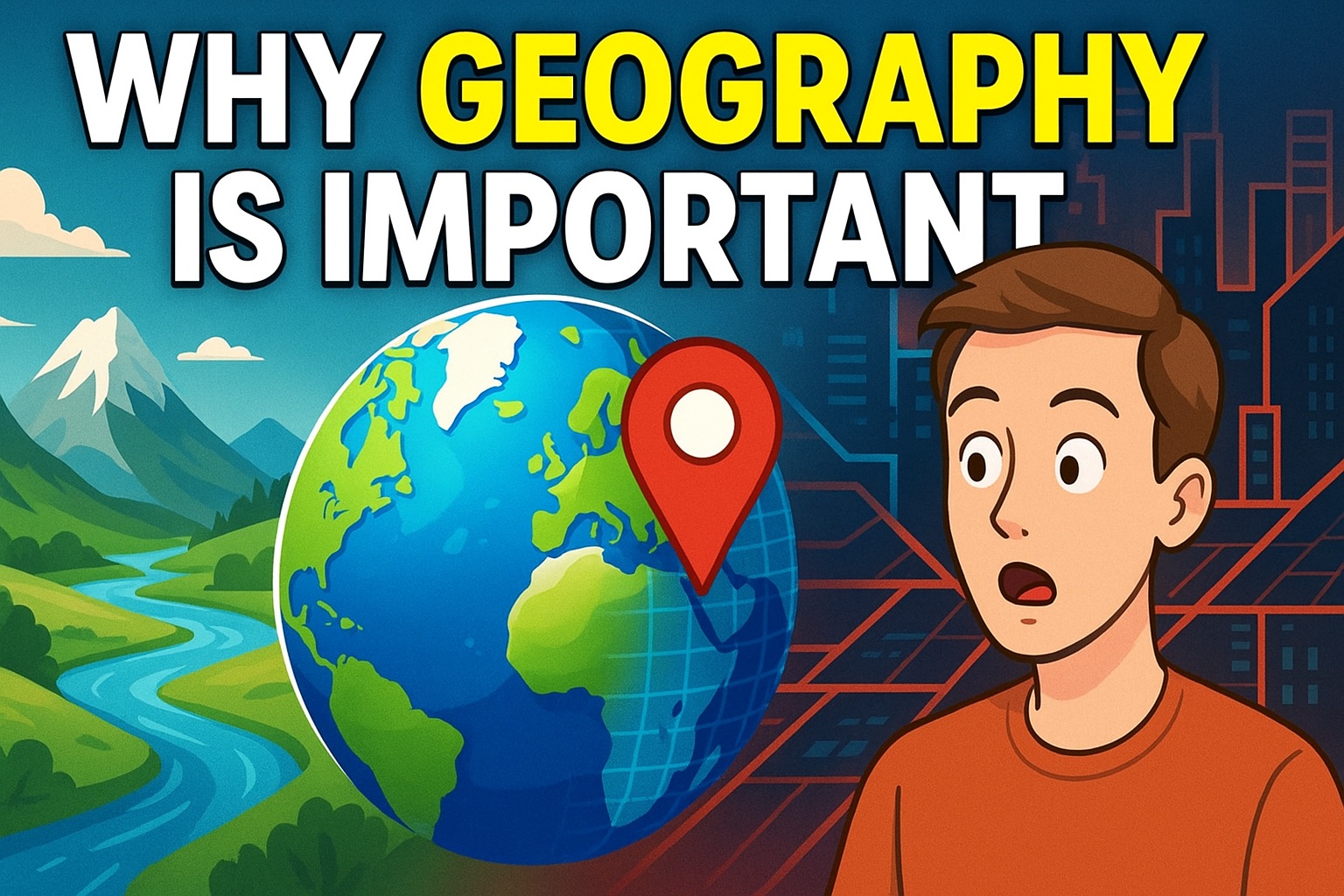🌍 1. What Is Geography?
Geography is the study of the Earth—its land, water, climate, people, and how everything is connected. It helps us understand both nature and human life.
⸻
🌐 2. Why Is Geography Important?
• It tells us why things happen in certain places.
(Example: Why do most cities grow near rivers?)
• It explains natural events like earthquakes, floods, and cyclones.
• It helps us understand big global problems like climate change and pollution.
⸻
🔄 3. Geography Connects Nature and People
Geography has two main parts:
• Physical Geography – land, water, weather, natural resources
• Human Geography – people, cities, culture, population
This makes geography both a science and a social subject.
⸻
🧠 4. What Skills Do You Learn?
• How to read and draw maps
• How to study and understand data
• How to think clearly and solve real-world problems
These are useful skills for life and work.
⸻
💼 5. What Careers Can You Get?
If you study geography, you can work in:
• Environment and climate jobs
• Urban planning (designing better cities)
• Disaster management
• Teaching and education
• Tourism, travel, and transport
• GIS (Geographic Information Systems) – a fast-growing tech field!
⸻
🌱 6. Want to Help the Earth?
Geography teaches you how to:
• Use natural resources wisely
• Protect forests, rivers, and wildlife
• Fight against climate change
If you care about the planet, geography gives you the tools to make a difference!
⸻
✅ Final Message:
Geography is more than maps.
It helps you understand the world, improve your skills, and explore exciting careers.
It’s a smart, practical subject—and it can help you change the world.
